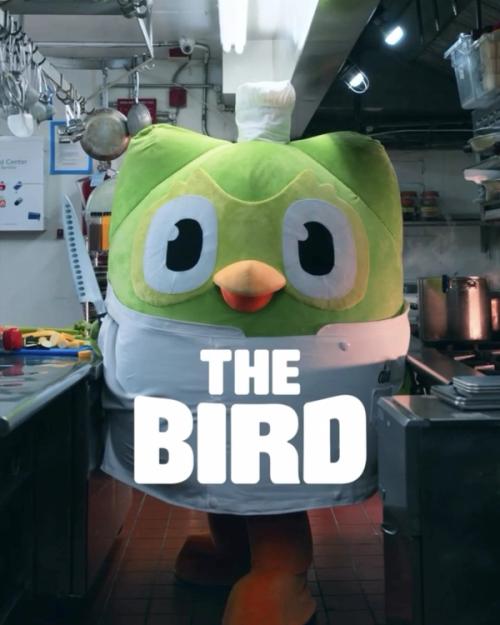Humour is famously hard to get right. And if you’re a brand? It’s that much more difficult. Advertising is, by its very nature, repetitive, and even the best jokes lose their shine after you’ve heard them enough times. But wit and playfulness is extremely powerful.
Some of the most successful brands of our times have used it to great effect: think of Duolingo’s unhinged owl, or Skittles’ singing rabbit ad, or Liquid Death’s willingness to laugh in the face of everything marketers hold dear.
Making people snigger or smile or chortle or snort creates a connection that’s hard to beat.
And there’s never been more places for brands to develop their sense of fun and wit. Social media channels are a huge space for companies to play on the periphery of their brand guidelines, and according to Nick Gallo – founder of creative agency Loop and former Graphics Director at The Onion – more of them should be doing so. In fact, the algorithm rewards brands that take a risk.
Do a gut check – will this make people feel something? Does it feel new? And when you pull on those two strings, there's a better chance they’ll remember you.
Nick Gallo, founder, Loop
“I think people are scared, and if humour has never been a part of their presence before I can see it feeling like a really big leap,” he says. “But you can’t learn without trying things and seeing what hits. “Do a gut check – will this make people feel something? Does it feel new? And when you pull on those two strings, there's a better chance they’ll remember you.”
The Loop team – recently named Small Agency Newcomer of the Year by AdAge – knows a few things about taking creative risks. Client projects have ranged from bringing back the internet-famous Zombie Kid to promote the Teenage Mutant Ninja Turtles: Mutant Mayhem film, through to creating a real-life version of the ‘this is fine’ meme for HR brand Deel and live-streaming a buffalo choosing March Madness brackets.

Persuading clients to embrace the weird and wacky has given Gallo a good understanding of a)how to make people laugh and b)do it within the (mostly) safe space of a brand. His advice is to first accept that the algorithm is an unknowable god.
“If I told you I knew what it was responding to, I’d be lying,” he says. “I have no idea. You see videos that are three minutes long with no hook and nothing happens for 45 seconds. Then you see other videos that are looping blocks of text on the screen.”
That means that brands can get more comfortable with being more experimental. “Start with the brief, and come up with some ideas that you like,” says Gallo. “If you don’t know what you like, get your group together and see what makes you smile.”
So we bring in all the juicy, fun, innovative, no-holds-barred ideas, and then we run through a couple with our goals in mind. That’s a good strategy on how to be funny with purpose.
Nick Gallo, Founder, Loop
Loop does this by running a ‘big to small’ ideation process. This starts at the world-is-your-oyster level, before being dialled down to the actual boundaries and guidelines. “So we bring in all the juicy, fun, innovative, no-holds-barred ideas, and then we run through a couple with our goals in mind,” he explains. “That’s a good strategy on how to be funny with purpose.”
“The entire team has to rally around it, and of course you sometimes have to massage ideas to get everyone aligned. But it’s all about finding a path forward while making sure the big fun idea is still a big fun idea.”
And as far as Gallo is concerned, play, humour and silliness isn’t off the table for any brand – no matter how ‘serious’ a company’s business. “I would say that the more serious your brand is, the more discipline you’ll have to use, because there are tighter boundaries, so less is more. You need to be strategic about the fun, while making sure it works within the greater tone of the brand, but it’s possible.”
And his biggest piece of advice for brands wanting to win over the algorithm? Care less, do more.
Images shown: This is Fine advert for Deel and The Bird film for Duolingo, by Loop.



